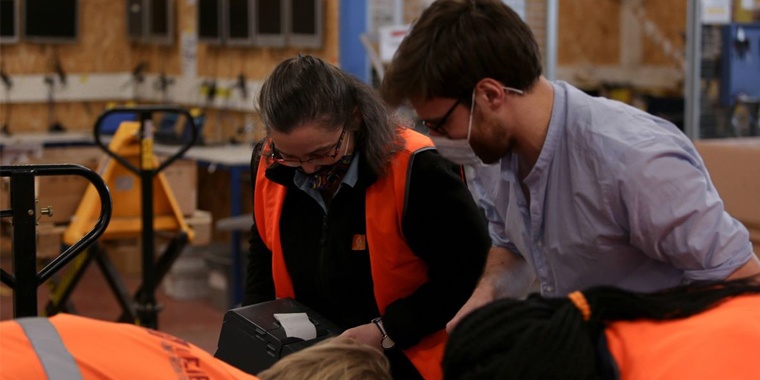
The circular economy, an essential for our suppliers
Facing growing environmental and economic challenges, it’s becoming essential for the manufacturing industry to begin its move towards a circular economy. Far from an ‘extract, produce, consume, throw away’ rationale, these players have every interest in rethinking the management of their resources to produce goods and services in a sustainable way. Convinced of the necessity of this approach, the Manutan Group, European leader in B2B e-commerce, is working hard to position the circular economy at the heart of its business, supporting its customers, as well as its suppliers in this transition.
A response to current challenges
Today, our development model is reaching its limits. For industrial companies, this results in new challenges: resource scarcity, supply shortages, strengthened regulations, societal pressure, etc. Whether they are obliged or drawn to it, economic players have no other choice than to initiate their circular transformation, to support sustainable development.
Guaranteeing supplies
For a little over a year, car manufacturers have had to regularly suspend their plants’ activity, due to a lack of spare parts or electrical components which are, for the main part, produced in Asia. And there’s no doubt that the development of electric vehicles will generate other shortages in essential minerals (nickel, cobalt, lithium and graphite for lithium-ion batteries and rare earths for permanent magnets). Aside from the automotive industries, these multiple shortages (wood, paper, chemicals, food, etc.) are affecting nearly all business sectors.
Anticipating regulatory constraints
France is committed towards a circular economy, and wants to accelerate the change in production and consumption models. In this respect, several flagship measures have emerged such as the ban on destroying unsold non-food products or the compulsory display of a reparability index for certain product categories.
At European level, the Commission wants to make sustainable products the norm on its territory. In this sense, discussions are currently underway to make virtually all physical goods more ecological, circular and energy-efficient, throughout their life cycle.
Meeting companies’ demand
More and more organisations are committed to a responsible purchasing approach, to contribute to their Corporate Social Responsibility strategy. For this, they are prioritising sustainable products and/or services and endeavouring to build a more resilient supply chain, beyond compliance. In this way, they can strengthen relations with their partners and create value by decorrelating economic growth from resource consumption.
Manutan is placing the circular economy at your service
The Manutan Group is gradually starting on this path, by rethinking its products and services offering. In this dynamic, we recently launched our collection and recycling service for used, broken and/or unsold electronic products, across France.
Our teams, helped by technicians and engineers undergoing professonal integration with the charity Atelier Sans Frontières (‘Workshop Without Borders’) are managing the entire chain:
- Collection of products on site
- Complete inventory and diagnosis of the products’ condition
- Erasure of data according to NIST SP 800-88 standard
- Reuse of products via resale, donation or as a last resort, recycling
- Sending a CSR report to promote your approach
To find out more or Obtain a personalised quote
While electrical and electronic products are recording the highest growth in waste among all the existing flows, fewer than 40% of these are recycled in the European Union . The time has come for circular action, a source of innovation and opportunities!
European Parliament, How the EU wants to achieve a circular economy by 2050
